With environmental sustainability becoming an important global priority, schools are crucial in instilling sustainable values and habits in young children.
Australian schools have a long way to go in adopting sustainable practices. Studies show that plastics account for a significant portion of litter in schools, making up 81% of the total litter in Australia.
Teaching about sustainability at an early age ensures that children grow up understanding the importance of responsible environmental practices, particularly when it comes to recycling and waste management. This blog explores how schools can effectively incorporate sustainability principles in their schools and foster a lifelong commitment to environmental responsibility.
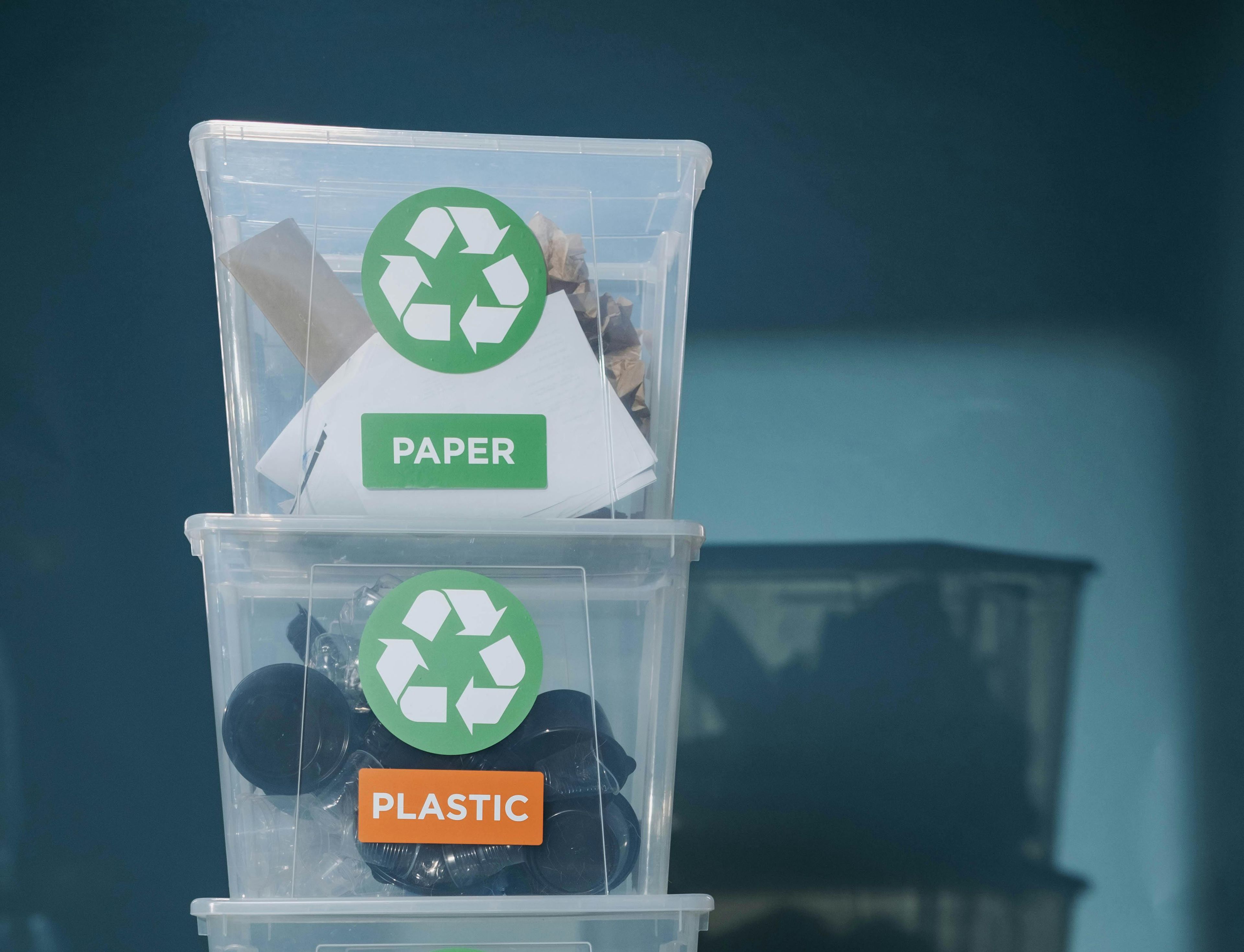
Ecologic waste separation
The Long-Term Impact: How Early Exposure to Recycling and Sustainability Leads to Lifelong Eco-Conscious Behaviours
The ripple effect of early environmental education is profound, as what starts in a single classroom can spread through entire communities.
Many researches show that habits formed during childhood often carry on into adulthood. When students are introduced to sustainable practices at an early age, they are more likely to bring these habits into their later lives as adults who care for the environment.
Studies also indicate that individuals who were taught recycling and sustainability in school are more likely to engage in eco-friendly behaviours as adults, such as reducing waste, conserving energy, and supporting environmental policies. Thus, early exposure to sustainability initiatives not only benefits students but also contributes to a broader cultural shift in the long term.
More importantly, schools implementing structured recycling habits would see students replicating these efforts at home, which further influences their families and communities. By partnering with a sustainable organisation like City Return and Earn, schools not only raise awareness about recycling but also instill long-term responsibility in students as they see firsthand the impact of their efforts.
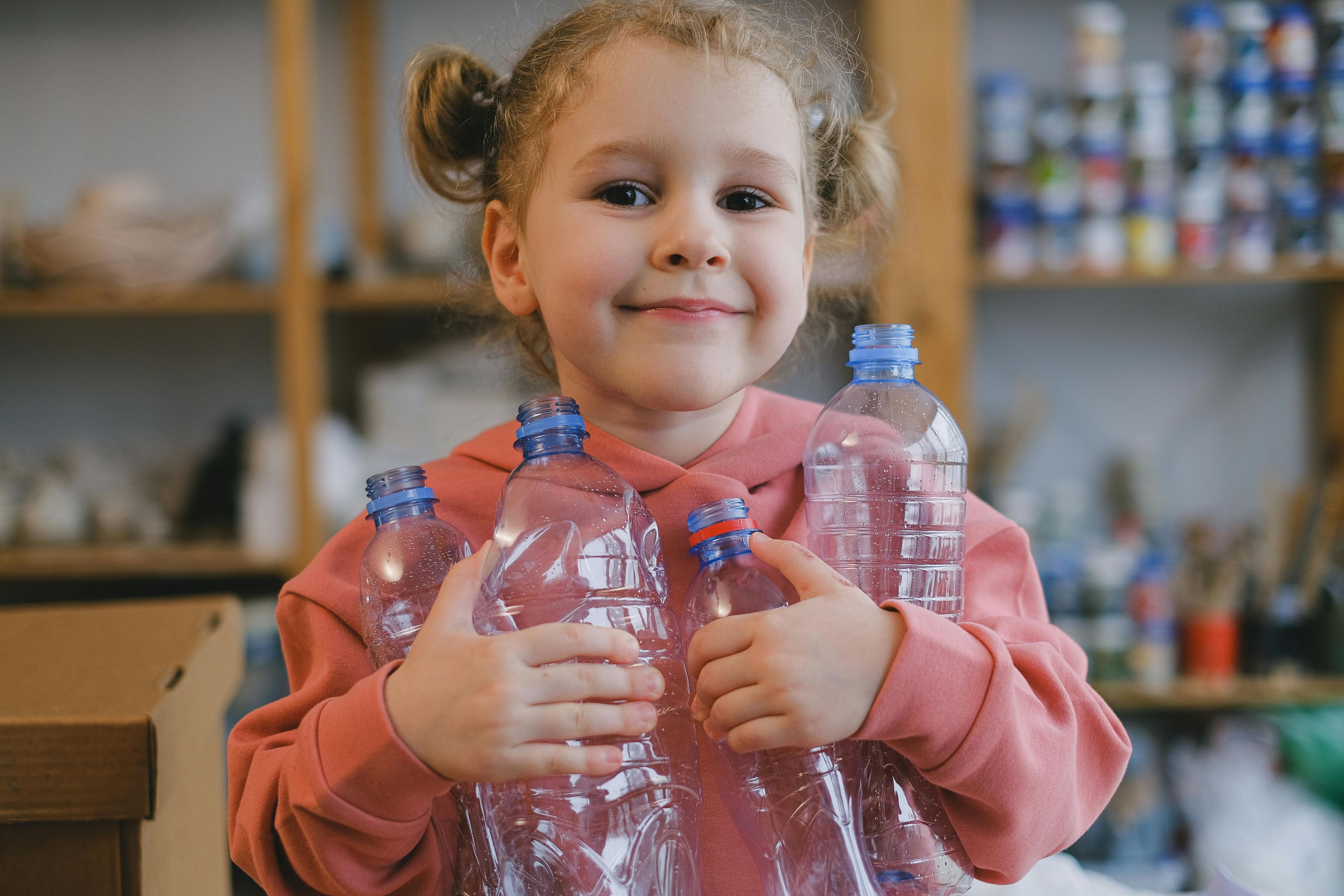
Girl carrying empty plastic bottles for recycling
Implementing Sustainability in Schools: Key Areas of Focus
Teaching sustainability doesn't require heavy investment. Even with small changes in curriculum and programs, educators can see big results. Here are some key suggestions.
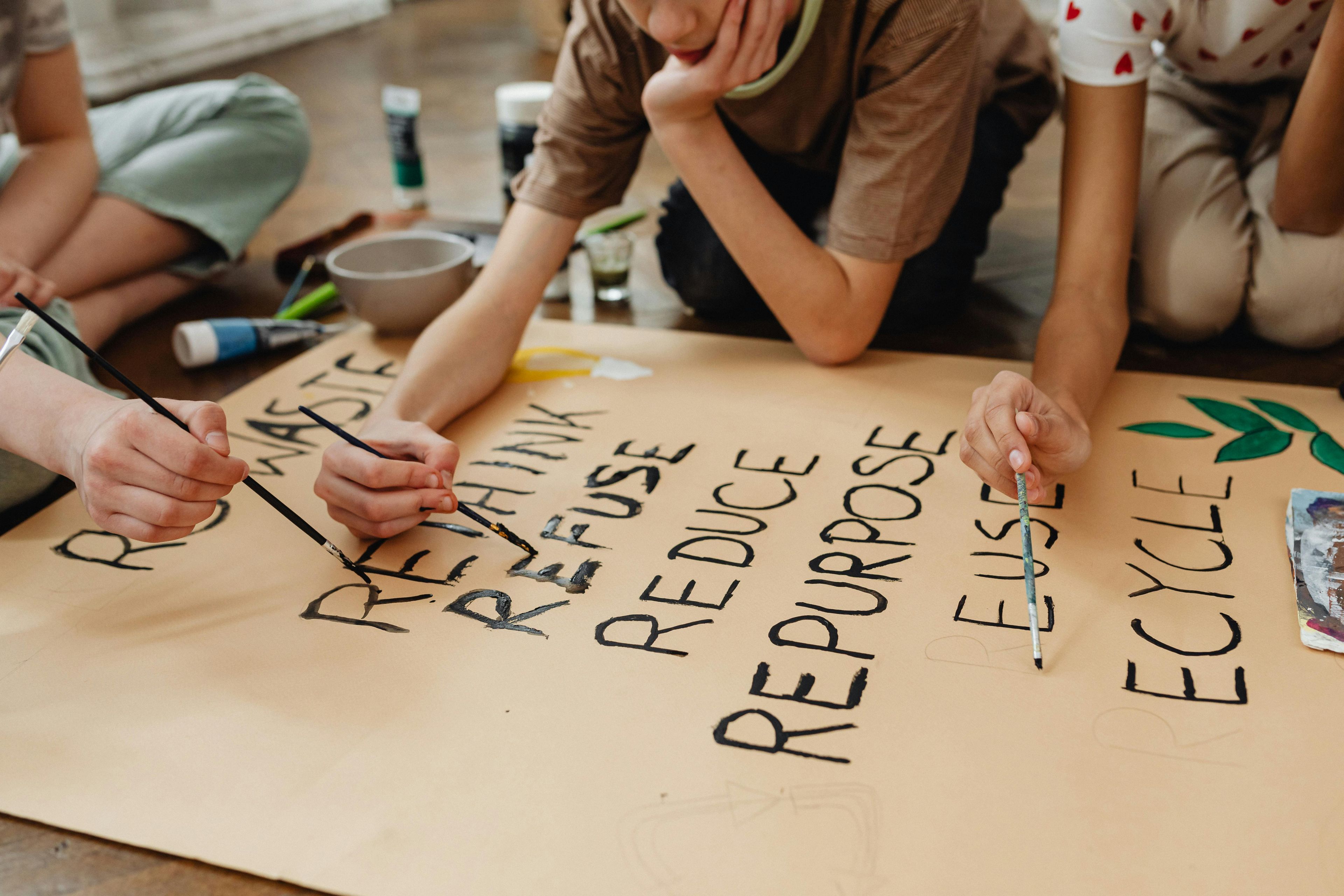
School activity around environment
Recycling Education
One of the simplest yet most effective ways to teach sustainability is through recycling education. Taking students on the journey of recycled containers can help build an early understanding of responsible waste management.
Here are some practical ways schools can adopt a robust recycling education among staff, parents, and students:
- Set up easily accessible recycling bins in classrooms and common areas.
- Label bins clearly to encourage proper waste sorting.
- Organise classroom discussions and activities that demonstrate the impact of waste on the environment.
- Encourage parents to bring reusable lunch containers and water bottles.
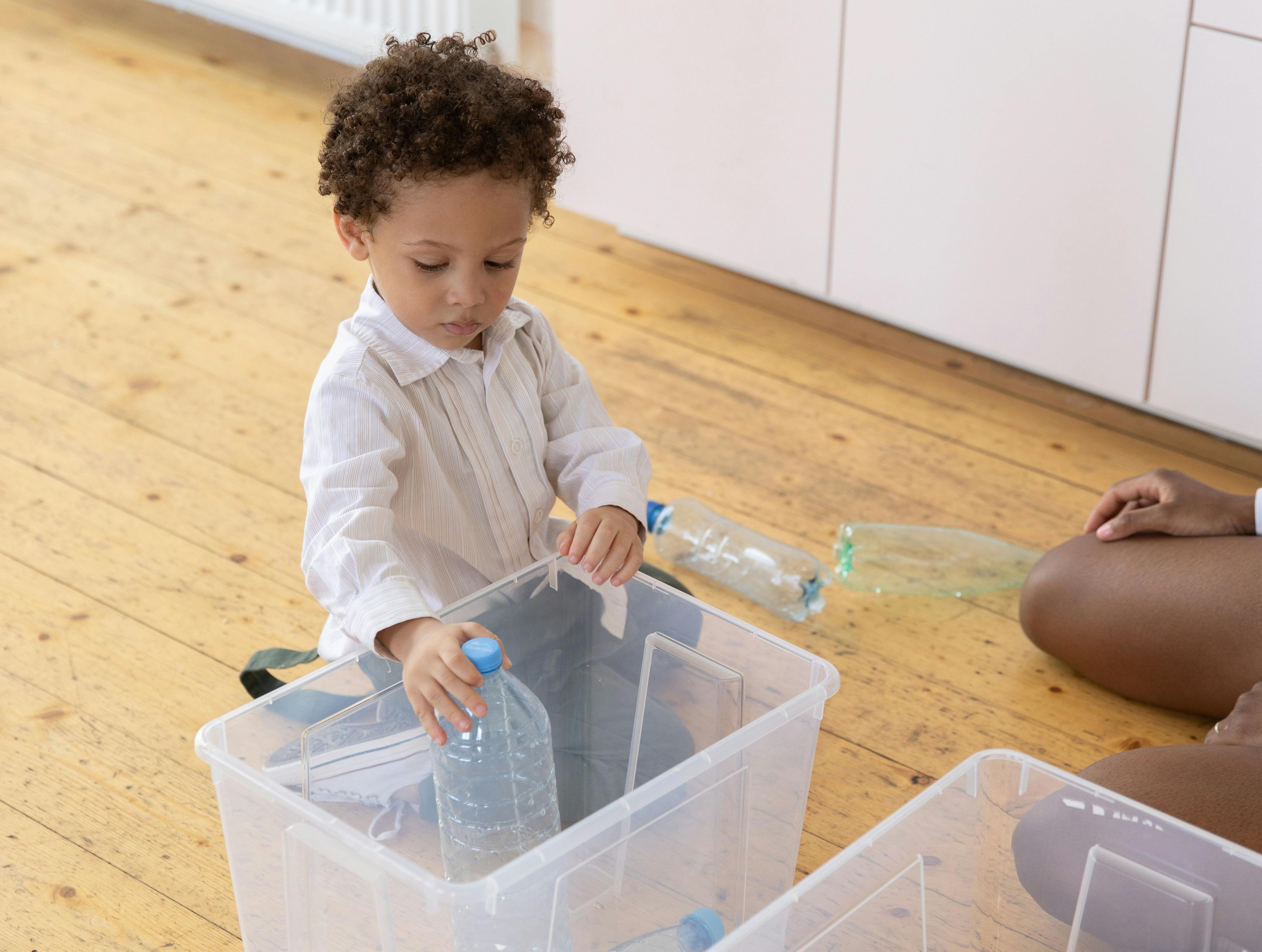
Kid throwing plastic bottle in box
Sustainable School Programs
Sustainability education extends beyond traditional classroom learning and can be reinforced through hands-on programs. Maintaining a school garden, for example, teaches students about plant life cycles and helps them understand the benefits of flora and biodiversity.
Consider programs that encourage students to grow their own fruits, vegetables, or native plants. This allows them to develop an appreciation for nature and learn about the importance of conservation.
Conducting waste audits is another powerful educational tool. Schools can partner with waste audit companies like Clean Vibes to analyse their waste streams, identify problem areas, and implement strategies to reduce waste. This approach helps students see firsthand the amount of waste generated and encourages them to think critically about possible solutions.
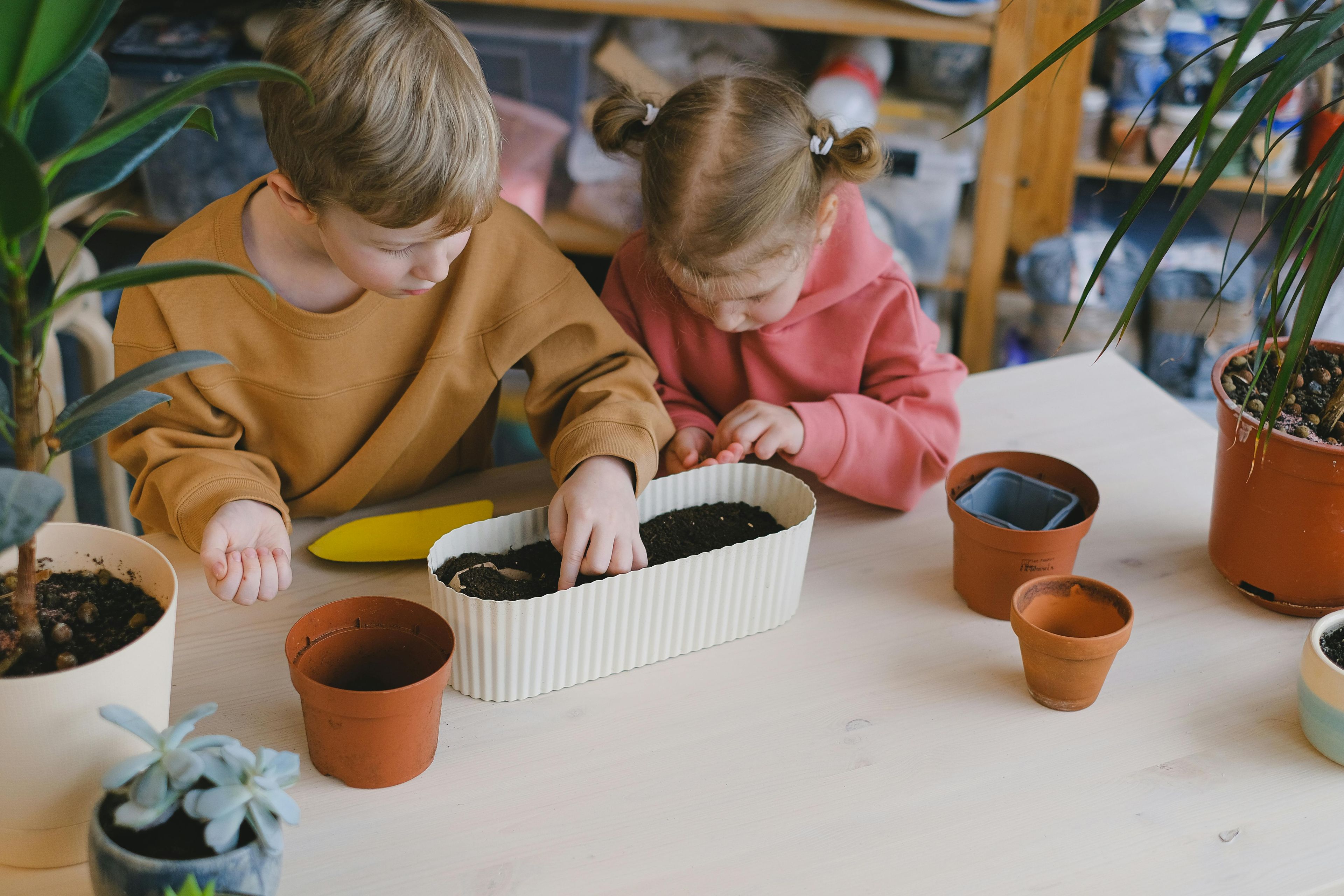
Kids planting seeds at school
Teaching About Climate Change in Age-Appropriate Ways
Teaching students about climate change is a critical lesson, but it must be done in a way that is engaging and age-appropriate.
For younger children, consider introducing basic concepts such as the importance of trees and clean air. Educators can also use storytelling, interactive activities, and nature walks to make these ideas more tangible.
For older students, sustainability lessons can delve deeper into topics such as pollution and the impact of climate change. Rather than overwhelming students with the negatives, educators should focus on how students can conserve resources and adopt good waste management habits to protect the environment.
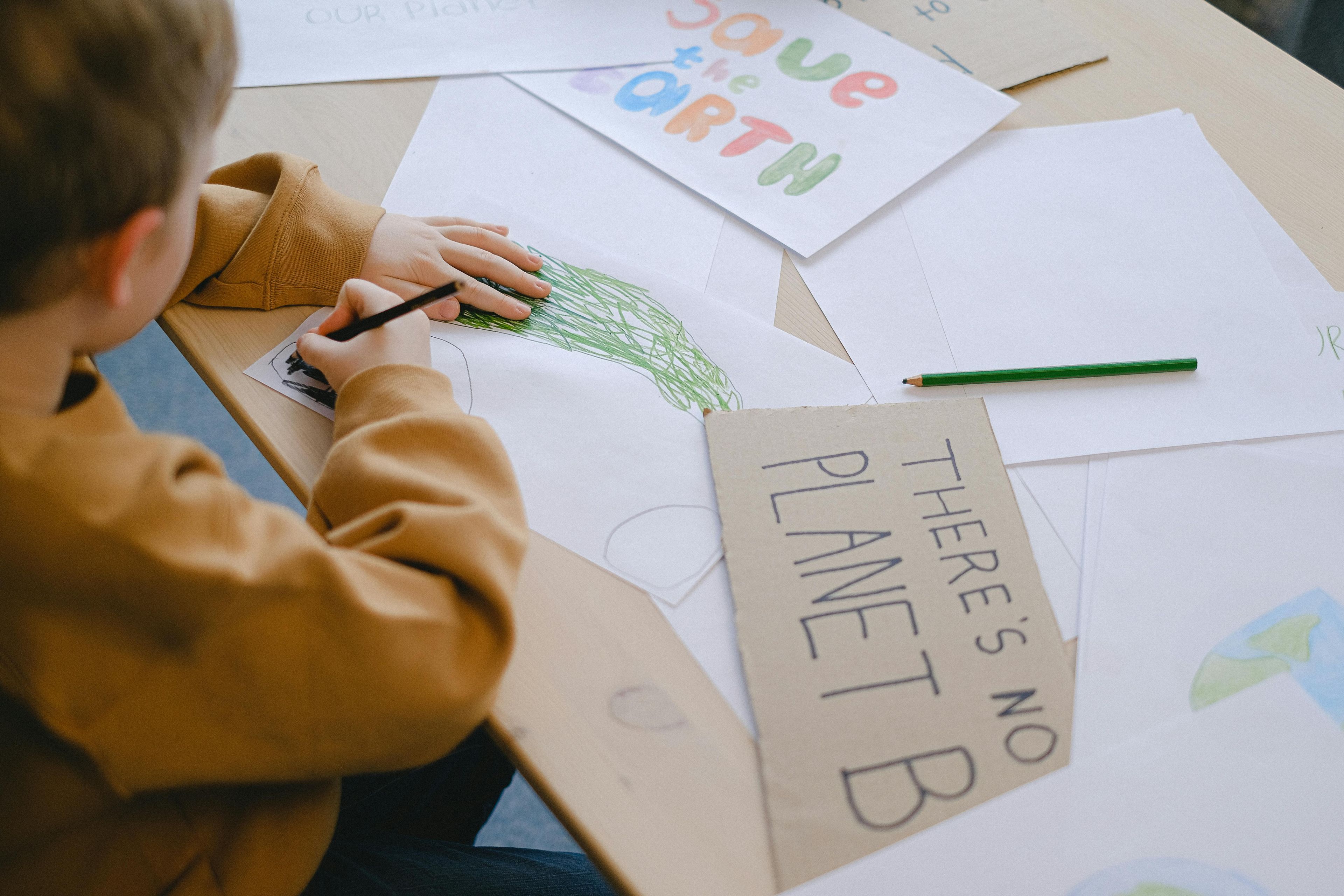
Kid drawing about environment
Partner with Return and Earn Scheme
One of the most impactful ways schools can engage in sustainability is by partnering with City Return and Earn. Our organisation is part of the NSW’s Container Deposit Scheme, which rewards individuals and schools by offering a 10-cent refund for every eligible container recycled with us.
Partnering with City Return and Earn allows educators and students to gain hands-on experience in recycling and sustainable waste disposal. Schools can choose to dispose of their recyclable containers at our convenient depot locations, or our team can set up designated recycling collection bins at schools.
Additionally, the funds collected from returning recyclable containers to City Return and Earn can be used to support school activities, sustainability projects, or end-of-year celebrations - making it highly rewarding for schools and students.
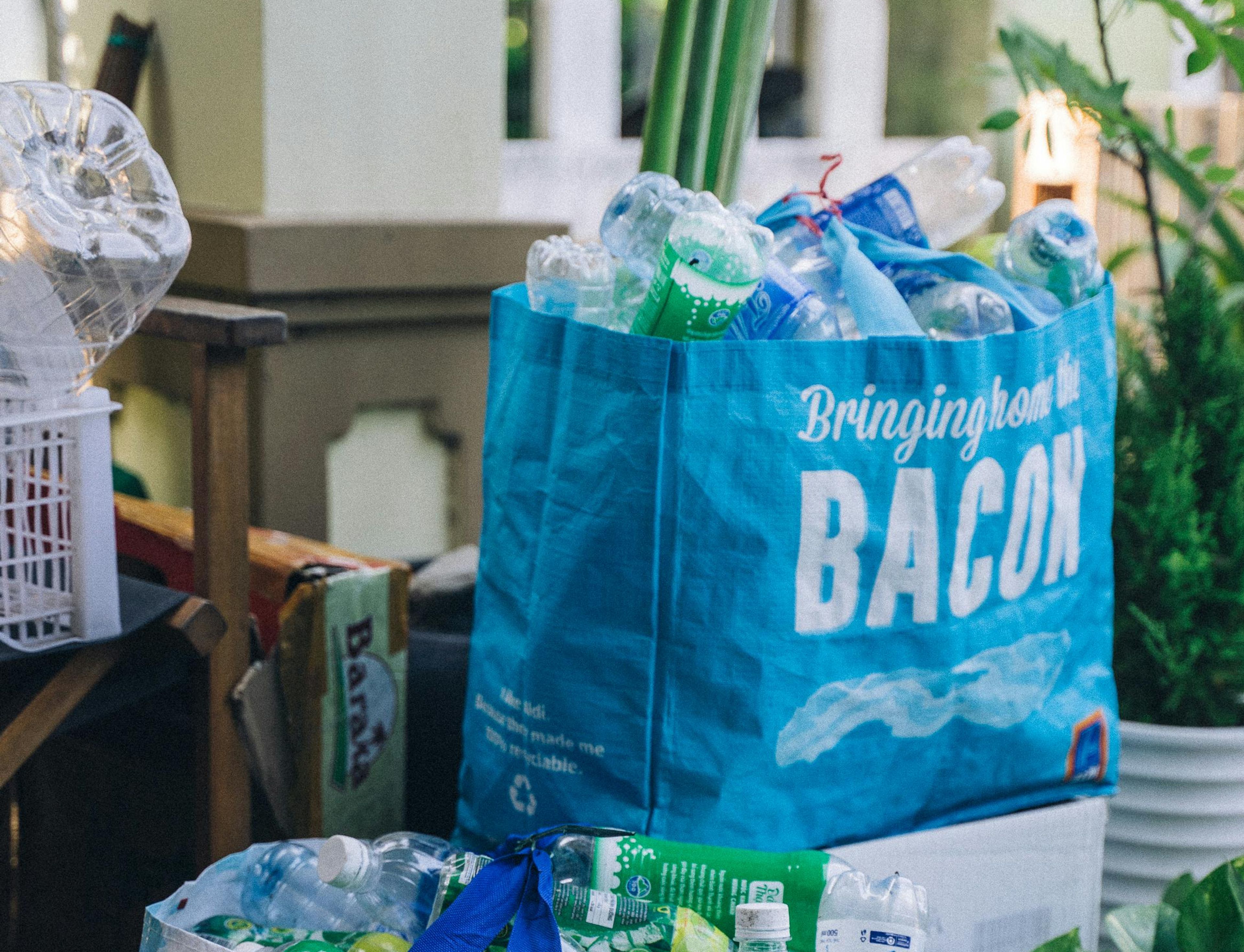
Bags full of empty plastic bottles
Tips for Making Sustainability Fun and Interactive
Sustainability education should be conducted creatively to get the attention of young students. Here are some fun ways to encourage student participation in the classroom:
- Encourage student-led initiatives: Let students take charge of sustainability projects such as school clean-ups, recycling collections, or awareness campaigns.
- Gamify recycling efforts: Organise healthy competitions where students earn points or get rewards for recycling and sorting their waste.
- Outdoor education: Consider running field trips to recycling centres, nature reserves, or conservation sites to provide firsthand learning experiences.
- Crafts and DIY projects: Have students create art or functional items from recycled materials in classrooms.
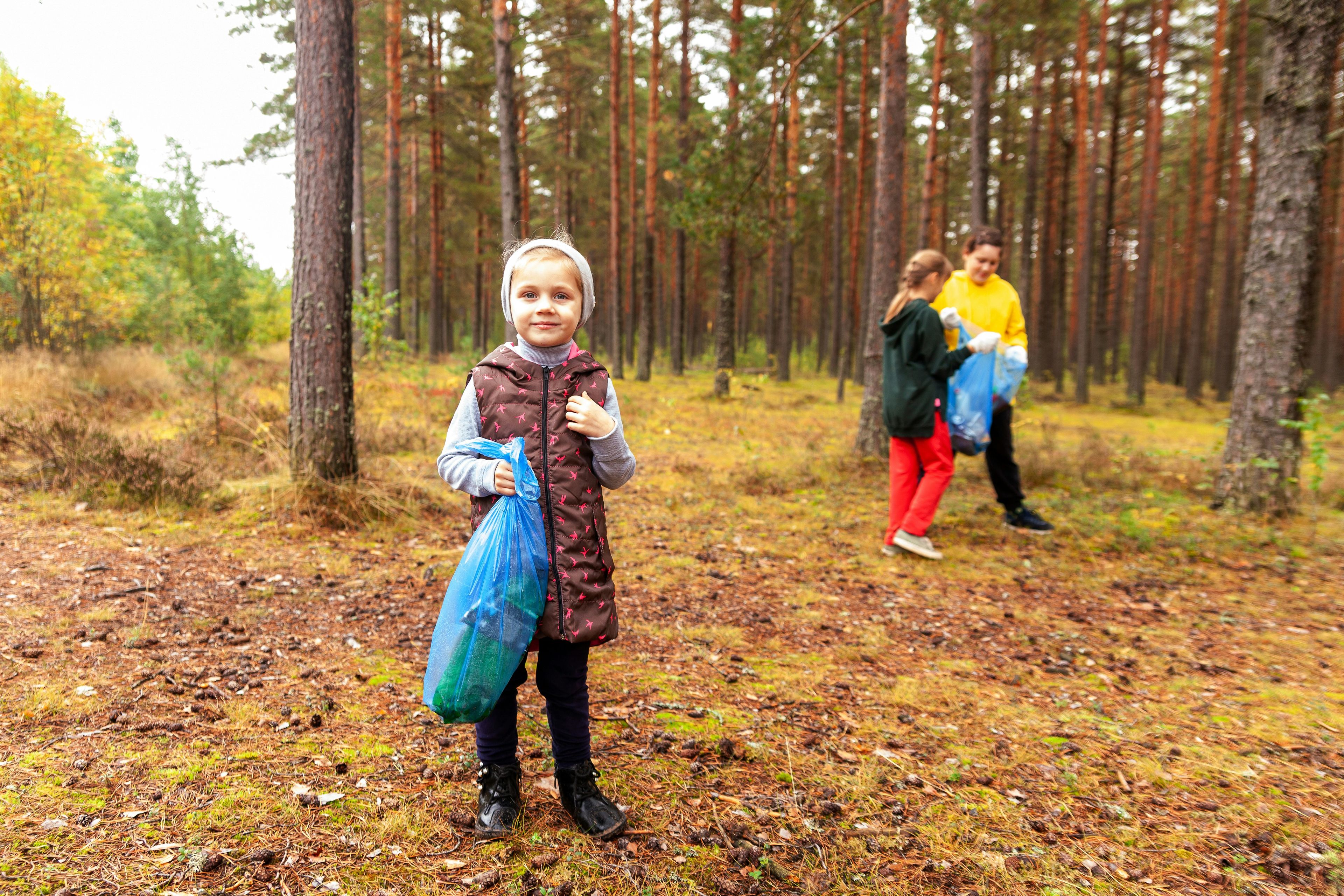
Kids picking up waste in forest
Key Takeaway
Schools play an important role in shaping the future. By implementing recycling and sustainability initiatives into their daily routines and educational programs, they can nurture a generation that prioritises environmental responsibility for years to come.
City Return and Earn comprehensive recycling services allow schools to reduce their environmental footprint, earn through recycling, and adopt good waste management habits that inspire students and parents to take action.
Learn more about our Return and Earn Scheme partnership and how you can make a difference.
Take Action Today for a Greener Tomorrow
Join us in our mission to reduce environmental impact and build a greener community for generations to come.